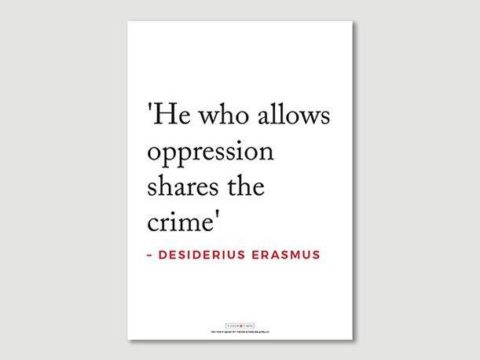John Knox: Life Story
Chapter 5 : Betrothal
Returning to Newcastle, Knox continued to court controversy, preaching on Christmas Day on the iniquity of the Catholics who remained in high office in England – and inveighing against the heir to the throne, the Lady Mary, who had refused point-blank to tolerate either version of the Book of Common Prayer. For this political interference, he was summoned before the Privy Council. His supporters there – Cecil, the Earl of Bedford and the king’s tutor, Sir John Cheke - spoke for him and he was exonerated. Once again, he went North, but drew the wrath of the local gentry, led by the Mayor of Newcastle, and the Lord Warden of the Marches, Lord Wharton, who objected strongly to Knox’s preaching, and in Northumberland’s words ‘uttered against him (Knox) his (Wharton’s) malicious stomach’.
Knox was apparently upset by these complaints. In a letter to Cecil, Northumberland describes ‘poor Knox’ as ‘in perplexity’. The Duke wanted King Edward to signify to Lord Wharton and Knox’s other detractors that the King had ‘the poor man and his doings in gracious favour’. This would prevent Wharton from stirring up opposition to Knox, which Northumberland thought might be a ’hindrance to religion’. He added that ‘no man [should] be so hardy to vex him [Knox]…for setting forward the King’s Majesty’s most godly proceedings, for that His Majesty intendeth to employ the man and his talent…for the edifying of [the king’s] people in the fear of God’.
One of the differences between the Catholic and the Protestant churches was the status of clerical marriage. Catholics abhorred the notion of married priests whilst Protestants not only permitted it, but generally encouraged it. In 1552, Knox betrothed himself to Margaret (known familiarly as Marjorie) Bowes. Marjorie’s family, connected to the great Yorkist families of Neville and FitzHugh, had served the English kings on the Borders for generations.
Marjorie’s father, Richard, was Captain of Norham Castle, and her uncle, Sir Robert Bowes, was Warden of the East and Middle March. Her father disapproved of Marjorie’s choice of husband, although her mother, Elizabeth, was strongly in favour of the match. Bowes eventually granted consent for the marriage, but it did not take place immediately.
Knox had met Marjorie and her mother as part of his congregation of committed Protestants, and he kept up a long-running correspondence with his mother-in-law on spiritual matters. This advice, whilst deeply personal, was part of Knox’s wider role within the Church and letters giving spiritual solace were shared amongst the congregation of the faithful. Knox’s relationship with his mother-in-law aroused suspicions at the time, which he firmly refuted – writing that his involvement with her was ‘neither flesh nor blood, but a troubled conscience on her part’. She was apparently desperately concerned lest her Catholic ‘idolatry’ had cut her off from salvation.
From the frequency with which Elizabeth wrote to Knox, it is obvious that she took up a good deal of his time, and needed constant reassurance and was what we might today call emotionally ‘needy’. Even though there was a deep emotional connection between them, the possibility of any sexual relationship is vanishingly small.
Knox’s time in Berwick and Newcastle was, for him, a time of pleasure and contentment. He felt that he was answering God’s call, and ministering effectively to his little part of the Church of believers, leading them away from the snares of Catholicism. Later, he came to believe that he was suffering from the sin of spiritual pride in his achievements.
Despite having accepted the Book of Common Prayer, and its requirement to kneel for the Eucharist, word reached the Privy Council that Knox was not following the rules. He had also declined the offer of the parish of All Hallows, Bread Street, London. Cranmer and the other members of the Privy Council thought that a personal explanation was in order, and Knox was summoned to London. He informed the Council that he did not want a London parish, partly because he could do more good in the North, but also because he was not reconciled to ‘black rubric’.
The Councillors valued uniformity and consistency of worship more than Knox. As they hoped to draw the largely Catholic population further along the path to Protestantism, it was important for everyone to move in lockstep. For Knox, this was tantamount to condoning errors – there should be no room for compromise. Now the truth of a pure Church was once again being preached, there should be no back-sliding.
The Council admonished him for his failure to conform, but took no action against him, and even continued to show him favour. He was invited to be one of the preachers who delivered the series of sermons preached in front of the king, to mark Lent. Knox took the opportunity to lambast various members of the Privy Council by name. This did not endear him to them.




